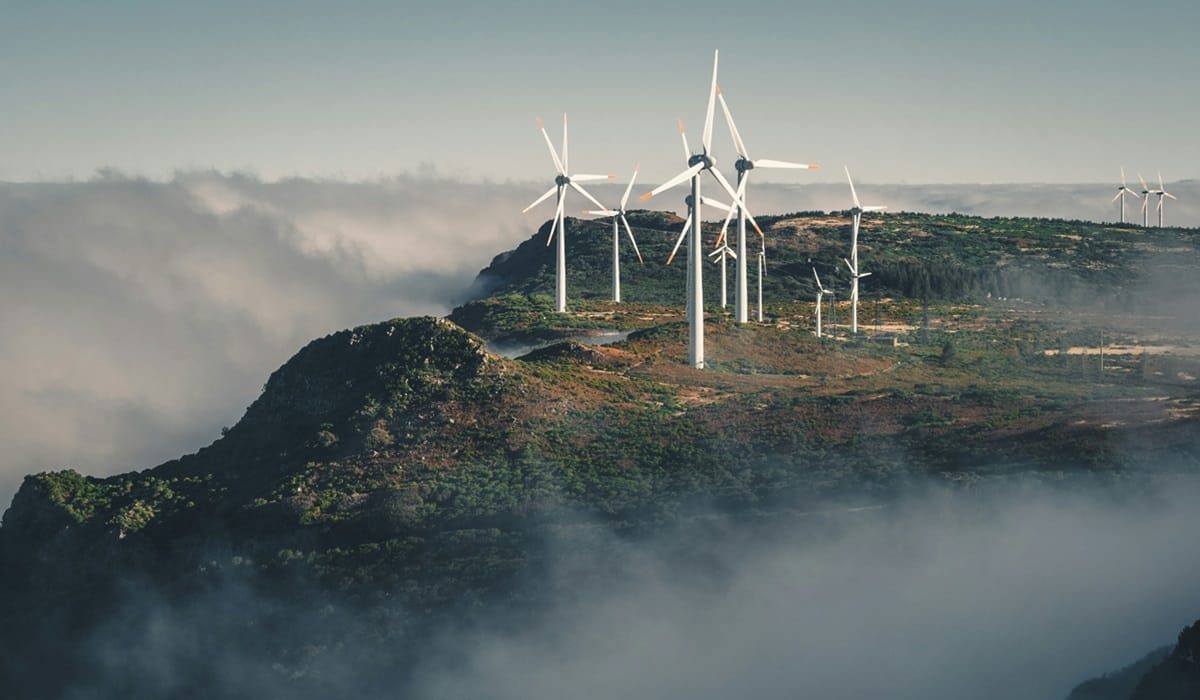Good news for humankind!
The world’s latest milestones for climate, justice, peace, health, and more
February 5 – 11 2024 C.E.
Wind power overtakes natural gas in the E.U. for first time ever
The European Union saw a record drop in fossil fuel power last year, according to a new analysis by energy think tank Ember. In 2023, coal generation fell by 26%, while gas generation fell by 15%. Along with a record buildout of renewables and a downturn in demand, the decline of fossil fuels led to an unprecedented drop in emissions from generating electricity, which fell by 19%. Now, for the first time, wind power supplies more electricity for Europe than either natural gas or coal.
More than 90% of trans people are more satisfied with life after transitioning, massive new study finds
Ninety-four percent of transgender people said that they were either a little or a lot more satisfied with their lives since they transitioned, the 2022 U.S. Transgender Survey (USTS) by the National Center for Transgender Equality (NCTE) found. The study, which is the latest edition of the influential survey of transgender people, involved 92,329 transgender and nonbinary respondents answering questions about various aspects of their lives from October 19 to December 5, 2022.
Pakistan has expanded mangroves nearly threefold between 1986 and 2020
Around the world, mangrove forests have undergone a decades-long decline that’s just now slowing to a halt. But Pakistan bucks this trend. The country’s mangroves expanded from 48,331 hectares in 1986 to 143,930 hectares in 2020, according to a 2022 analysis of satellite data. Many in Pakistan are looking to mangroves to bolster precious fish stocks and defend against the mounting effects of climate change.
Ethiopia to ban non-electric car imports
The Ethiopian Ministry of Transport and Logistics recently announced that motor vehicles will soon be banned from importation in favor of electric vehicles. This measure is part of the Green development master plan 2021-2030 approved by the Ethiopian parliament, which aims to import at least 152,800 electric vehicles over 10 years.
France implements compulsory composting
As of January 2024, municipalities in France must now provide residents with ways to sort bio-waste, which includes food scraps, vegetable peels, expired food and garden waste. Households and businesses are required to dispose of organic matter either in a dedicated small bin for home collection or at a municipal collection point. The waste will then be turned into biogas or compost to replace chemical fertilizers.
Gene therapy hailed as ‘medical magic wand’ for hereditary swelling disorder
Hereditary angioedema, or HAE, is a rare disease that affects about one in 50,000 people. It is caused by a genetic mutation that leaves patients with leaky blood vessels, causing erratic bouts of swelling. Dr. Hilary Longhurst, the principal investigator at New Zealand’s Te Toka Tumai, Auckland City hospital, said the new single-dose therapy appeared to provide a permanent cure for her patients’ “very disabling symptoms”.
E.U. will force cosmetic companies to pay to reduce micropollutants
Under draft rules that follow the “polluter pays principle”, companies that sell medicines and cosmetics will have to cover at least 80% of the extra costs needed to get rid of tiny pollutants that are dirtying urban wastewater. Governments will pay the rest, members of the bloc said, in an effort to prevent vital products from becoming too expensive or scarce.
Belgium bans import of hunting trophies from endangered species
Before the ban, Belgium allowed the import of trophy species vulnerable to extinction such as hippopotamus, cheetahs and polar bears. The new law will stop the import of hunting trophies from many species currently at risk of extinction or that could be threatened unless trade is limited. The bill will protect all species listed in the European Regulation on the protection of species of wild fauna and flora.
Novel AI model rapidly determines if an antidepressant will work
Amsterdam University Medical Center (UMC) and Radboud UMC researchers have developed an algorithm that, based on patient MRI scans and other data, can determine within a week if a particular antidepressant will, offering faster relief and minimizing often painful and damaging side effects. “This is important news for patients,” said Liesbeth Reneman, Professor of Neuroradiology at Amsterdam UMC. “Normally, it takes six to eight weeks before it is known whether an antidepressant will work.”
In Scotland, renewable power has outstripped demand
For the first time, in 2022, Scottish renewables generated more power than the country used, new government figures show. The growth of wind power, coupled with a small drop in electricity consumption, meant that the volume of electricity produced by renewables in Scotland was equal to 113 percent of demand.
James Blyth of Scotland builds and operates the world’s first electricity-generating wind turbine (1887 C.E.)
Blyth’s 10 m high, cloth-sailed wind turbine was installed in the garden of his holiday cottage at Marykirk in Kincardineshire and was used to charge accumulators developed by the Frenchman Camille Alphonse Faure, to power the lighting in the cottage, thus making it the first house in the world to have its electricity supplied by wind power. Blyth offered the surplus electricity to the people of Marykirk for lighting the main street, however, they turned down the offer as they thought electricity was “the work of the devil.”
Wind power supplies a majority of E.U.’s electricity for the first time (2041 C.E. ???)
In the 2020s, the European Union set a target of at least 50% of electricity supplied by wind by 2050. However, due to the accelerating economic viability of renewables and heightened political urgency, it accomplishes this major climate milestone years ahead of schedule.
These milestones have been added to our database of social change milestones – past, present & future. Filter by topic, country, era, and more. Explore the archive



